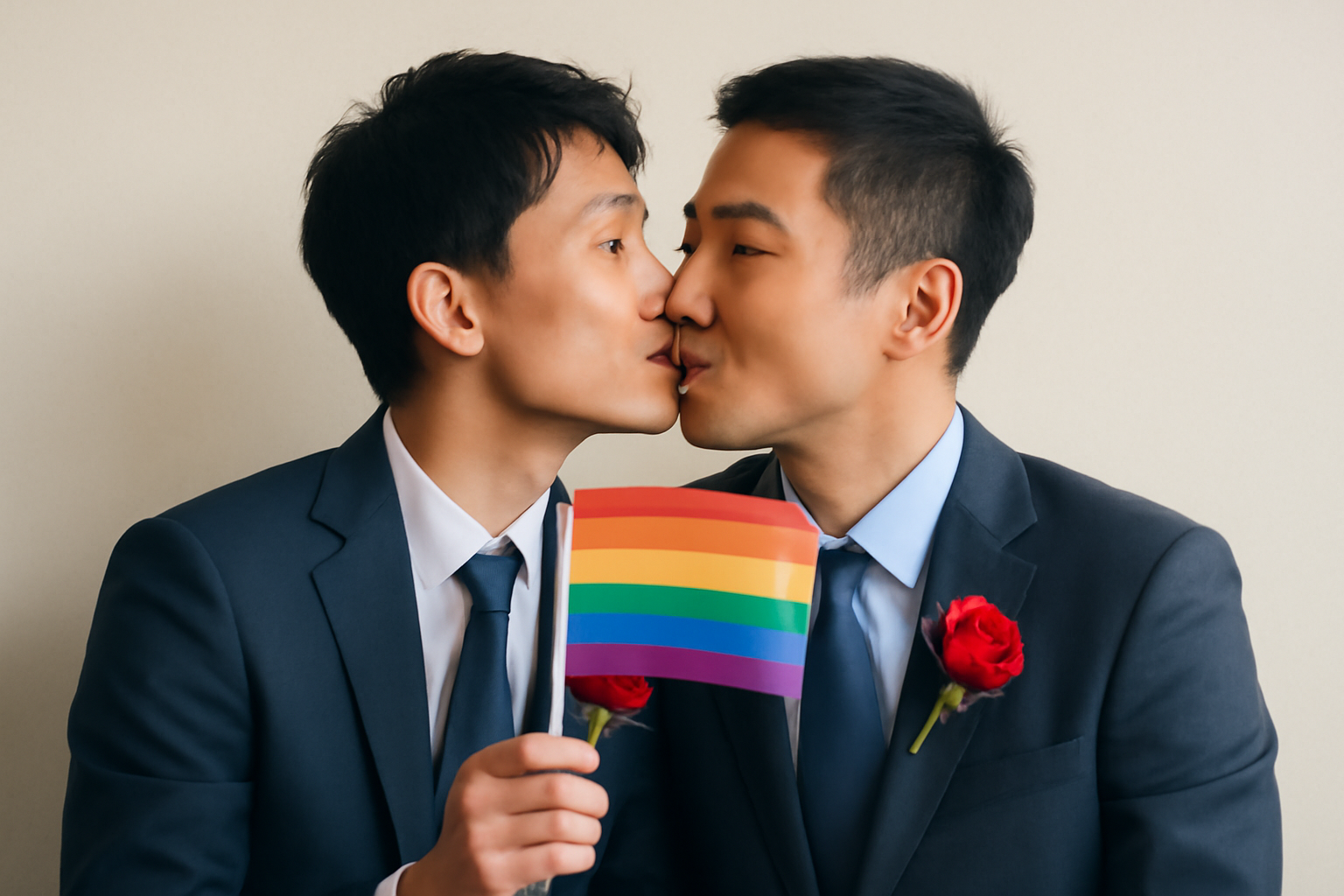
On March 7, the Nagoya High Court in Japan made a landmark ruling, declaring that the absence of legal recognition for same-sex marriages is a violation of the country's constitution. This decision marks a significant victory for the marriage equality movement in Japan.
The plaintiffs in the case argued that Japan's Civil Code and Family Registration Act, which currently do not recognize same-sex marriages, are unconstitutional. They based their argument on Article 14, Paragraph 1 of the Japanese Constitution, which guarantees equality under the law and prohibits discrimination based on factors such as race, creed, sex, or social status. Additionally, they cited Article 24, Paragraph 2, emphasizing that marriage and family laws should uphold individual dignity and fundamental equality between the sexes.
Seeking damages of 1 million yen (approximately $6,721.80), the plaintiffs invoked Article 1, Paragraph 1 of the State Redress Act, which allows for compensation when a public official's intentional or negligent acts cause harm. The claim was rooted in the government's failure to enact necessary legislation, which hindered the plaintiffs from marrying.
The court acknowledged that same-sex relationships have naturally existed long before the establishment of legal marriage. Recognizing such relationships was deemed a fundamental legal interest connected to personal dignity that transcends traditional legal frameworks for marriage and family.
Furthermore, the court observed that same-sex couples face significant social disadvantages that cannot be resolved through civil partnership systems. These include challenges in housing, such as restrictions on renting properties, and issues with financial institutions that do not recognize same-sex couples as family for the purpose of mortgages. Additionally, same-sex couples struggle to access products and services designed for family relationships. While the court found the relevant legal provisions unconstitutional, it clarified that the government's inaction does not breach the State Redress Act.
The lawsuit, known as "Freedom of Marriage for All," united a large coalition of professionals, including over 30 plaintiffs and 80 lawyers. They filed six lawsuits across five Japanese courts.
"We filed these lawsuits on Valentine's Day, February 14, 2019, in Tokyo, Osaka, Nagoya, and Sapporo, and later that year in Fukuoka," stated Takeharu Kato, director of Marriage for All Japan. "In March 2021, the Sapporo District Court was the first to rule the current laws unconstitutional, gaining worldwide media attention. Although the Osaka District Court subsequently upheld the laws, nine out of ten rulings so far have found the lack of marriage equality unconstitutional."
Kato, a lawyer involved in the Sapporo case and a board member of Marriage for All Japan, highlighted the campaign's efforts to publicize the trials and rulings through their website and social media. "We organize press conferences when rulings are announced and host events with the plaintiffs, inviting them to rallies at the Diet building," he explained.
The campaign has shifted public opinion, with recent polls showing over 70 percent of Japanese citizens now support marriage equality, compared to around 40 percent before the campaign began. Additionally, 49 percent of Diet members now back marriage equality.
Japan remains the only G7 nation that does not legally recognize same-sex couples, while countries like Taiwan, Nepal, and Thailand have granted full marriage rights to LGBTQ+ individuals.
Despite strong public support, many Japanese politicians continue to resist marriage equality. Kato expressed optimism that the Supreme Court will rule the current laws unconstitutional, but stressed the need for legislative action from the Diet to achieve full marriage equality.
"We expect the Supreme Court to confirm the unconstitutionality of the current laws," Kato said. "However, a Supreme Court ruling alone won't suffice. We must increase pressure on the Diet to legalize marriage equality swiftly."
Currently, some municipalities and prefectures issue certificates that offer limited benefits to same-sex couples, but these do not equate to full legal recognition.
Prime Minister Fumio Kishida's government has faced growing pressure to address the issue, as public support for marriage equality has risen in recent years. Although the government passed a law in June 2023 to address sexual orientation and gender identity, activists criticized it for not providing comprehensive protections or extending marriage rights to same-sex couples.
The movement for marriage equality in Japan continues to gain momentum, driven by legal victories and increasing public support.
Related Posts
Pete Buttigieg's Next Steps: Life After Cabinet
Welcome to this week's uplifting news roundup, where we bring you stories celebrating love, progress, and solidarity within the LGBTQ+ community. From politics to personal milestones, it's a reminder of the strides being made and the joy we can find in our shared experiences. Let's dive in! Celebrating Love and Progress Wedding bells and love songs are resonating as we kick off this week's good [...]
Exciting New Images Released for '100 Nights of Hero': A Captivating Historical Fantasy
Unpacking '100 Nights Of Hero': A First Look If you're a fan who loves getting lost in historical fantasy, get ready because new images from *100 Nights Of Hero* have just dropped. This much-anticipated film stars Nicholas Galitzine, Emma Corrine, and Charli XCX, and brings Isabel Greenberg's beloved graphic novel storybook magic onto screens. Under Julia Jackman‘s masterful direction, *100 Ni [...]
Mary Trump Critiques Her Uncle's Use of Religion for Political Gain
Mary Trump, a clinical psychologist and openly lesbian, has been quite vocal about her criticisms regarding her uncle, former President Donald Trump. Recently, she took issue with how he uses religion as a means, in her view, simply as a tool, especially evident when discussing his decision on a military strike against Iran. In her blog, she expressed concerns that invoking God was less about fait [...]